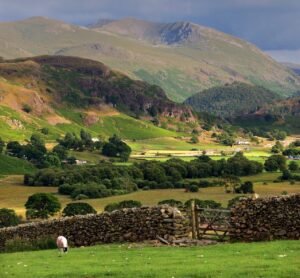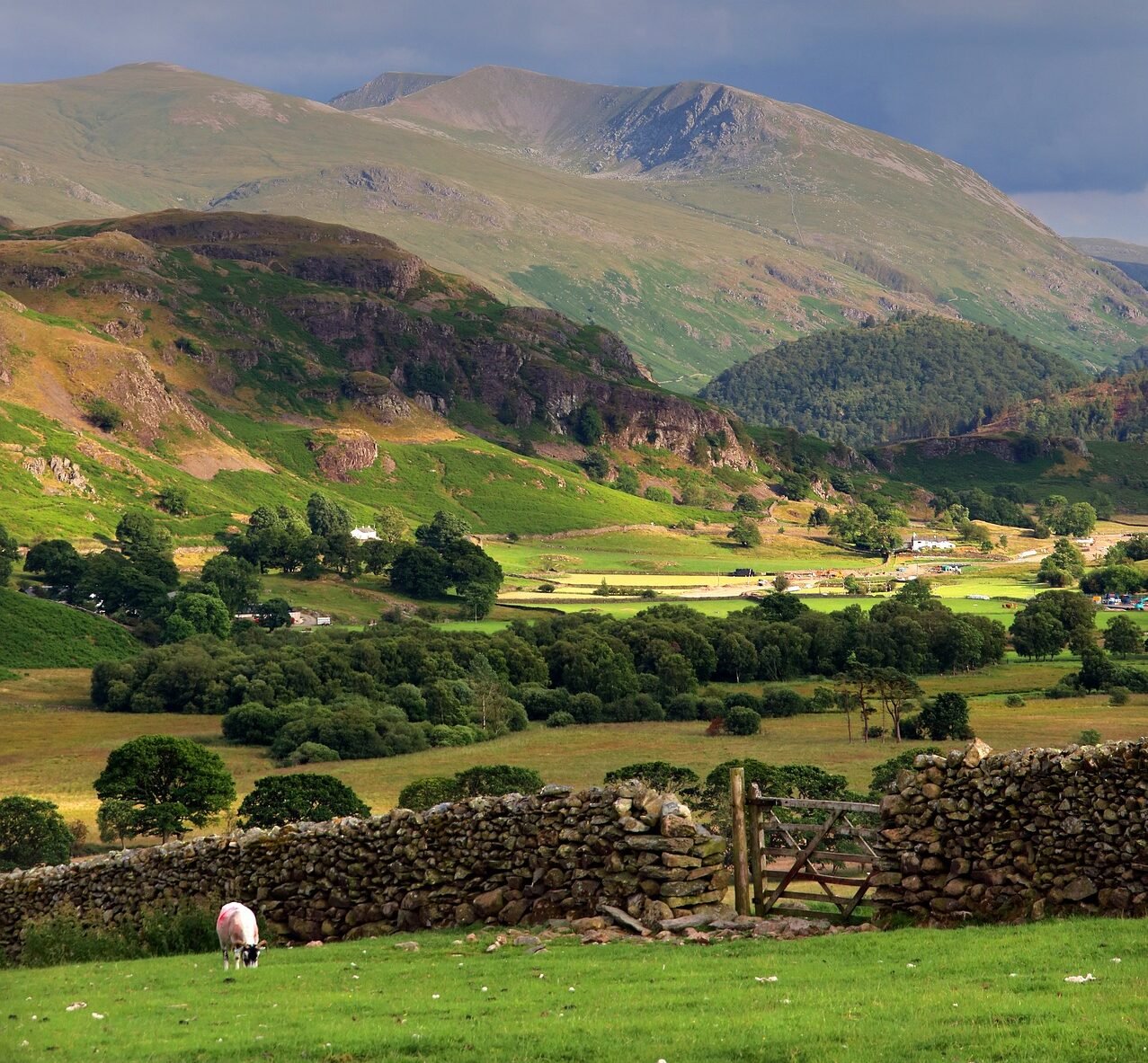Introduction to the United Kingdom
The United Kingdom (UK) is a sovereign country located off the north-western coast of mainland Europe. It comprises four distinct constituent countries: England, Scotland, Wales, and Northern Ireland. Each of these regions contributes uniquely to the rich tapestry of British identity, offering an array of cultural, historical, and geographical diversity. The capital city, London, is situated in England and serves not only as the political heart of the UK but also as a global hub for finance, culture, and education. This Guide to the United Kingdom will make your travel easy.
Geographically, the UK features a varied landscape that ranges from the picturesque hills of the Lake District in England to the rugged Highlands of Scotland. Wales is renowned for its mountainous terrain and stunning coastline, while Northern Ireland boasts the striking beauty of the Giant’s Causeway. This geographic diversity makes the UK an appealing destination for a variety of travellers, with opportunities for both urban exploration and outdoor adventures.
Historically, the UK has played a significant role on the world stage, from the rise and fall of the British Empire to its ongoing influence in global politics, economics, and culture. The rich heritage is reflected in its historic sites, from ancient castles and prehistoric monuments to iconic landmarks such as Big Ben and Stonehenge. Culture in the UK is equally vibrant, known for its contributions to literature, music, and art, with renowned authors like William Shakespeare and contemporary music legends like The Beatles shaping cultural discourse worldwide.
The best times to visit the UK can vary, but generally, late spring to early autumn offers the most pleasant weather, with numerous festivals and events happening throughout these months. The blend of historical depth and rich culture ensures that visitors can partake in a uniquely British experience, making the United Kingdom a noteworthy destination on the world map.
Getting Around: Transportation Options
Navigating the United Kingdom efficiently requires an understanding of its diverse transportation options. For international travellers, flying into major airports such as Heathrow, Gatwick, and Manchester serves as a common entry point. Domestic flights are also available for those looking to travel quickly between cities like Edinburgh, Glasgow, and Belfast. Airline companies provide frequent services, so checking schedules can simplify onward journeys and maximize travel time.
The rail network in the UK is extensive, offering a reliable and scenic method of travel. With key operators like Virgin Trains, Great Western Railway, and LNER, travellers can access an array of destinations. Rail passes, such as the Brit Rail pass, can provide savings for those planning multiple train journeys. It is advisable to book tickets in advance to secure the best prices and seating options. Online tools and apps help gauge travel times and routes efficiently, ensuring a seamless experience.
For local travel, the bus network is comprehensive and often more budget-friendly than trains. City buses and long-distance coaches, like those operated by National Express and Mega bus, connect major urban areas and provide an economical option for traversing the UK. Understanding fare structures and available passes, such as the Oyster card for London, can enhance convenience and reduce travel costs for tourists navigating public transport.
Car rentals represent another popular choice, especially for those desiring flexibility in exploring remote areas. Major rental companies operate in cities and at airports, allowing visitors to secure vehicles easily. Familiarity with driving on the left side of the road and the various road laws is crucial for a safe and compliant driving experience.
In conclusion, having a clear understanding of transportation options in the United Kingdom, including air travel, rail services, buses, and car rentals, will facilitate smoother itineraries and enhance the overall travel experience. Proper planning can ensure that visitors make the most of their time discovering the rich history and diverse landscapes the UK has to offer.

Must-Visit Cities and Attractions
The United Kingdom is a treasure trove of historical and cultural landmarks, making it an ideal destination for travellers. Among the top cities to explore, London stands out with its iconic attractions such as the Tower of London, Buckingham Palace, and the British Museum. Visitors can immerse themselves in the city’s rich history and art while enjoying diverse dining options from traditional British pubs to international cuisines found in the vibrant neighbourhoods of Shoreditch and Camden.
Moving north, Edinburgh captivates with its dramatic skyline dominated by the ancient Edinburgh Castle. This city is steeped in history, and walking along the Royal Mile provides a glimpse into its medieval past. Moreover, Arthur’s Seat, an extinct volcano, offers stunning views of the surrounding landscape and is perfect for outdoor enthusiasts. Edinburgh’s festivals, including the famous Fringe Festival, further enhance its appeal as a lively cultural hub.
Cardiff, the capital of Wales, is another remarkable city that should not be missed. The stunning Cardiff Castle lies at its heart, providing a window into Wales’ unique heritage. Additionally, the revitalized Cardiff Bay features an array of restaurants and attractions, including the Wales Millennium Centre for performing arts. Outdoor lovers can explore the nearby Brecon Beacons National Park, featuring beautiful landscapes and trails.
Completing the list is Belfast, the capital of Northern Ireland, which has undergone significant transformation. The Titanic Belfast museum stands as a tribute to the city’s maritime history, while the vibrant Cathedral Quarter is known for its lively arts scene and excellent eateries. Visitors can appreciate the city’s rich history as they stroll along the streets adorned with murals documenting the region’s past. These cities, with their distinct attractions and experiences, collectively showcase the vast cultural diversity present in the United Kingdom.
Cultural Experiences: Arts, Festivals, and Food
The United Kingdom is a vibrant tapestry of cultural experiences, characterized by its rich heritage in arts, music, and gastronomy. The arts scene encompasses both traditional and contemporary expressions, with the UK being home to renowned institutions such as The British Museum and The Tate Modern, which showcase artworks that span centuries. Additionally, the diverse music landscape serves as a testament to the UK’s innovative spirit, from classical composers like Elgar and Vaughan Williams to contemporary genres, including Britpop and electronic music. Cities like London, Manchester, and Liverpool are known for their dynamic music scenes, featuring venues that host performances by both established and emerging artists, celebrating a wide array of musical styles.
Festival culture in the UK is equally notable, with events that commemorate everything from local traditions to global phenomena. The Edinburgh Festival Fringe is recognized as the largest arts festival in the world, showcasing an array of performances from theatre to comedy. Other notable festivals include the Glastonbury Festival, which draws music lovers globally, and the Notting Hill Carnival, celebrating Afro-Caribbean heritage through vibrant parades and multicultural music. Such festivals not only strengthen community ties but also foster an appreciation of the arts.
Food plays a significant role in cultural experiences across the UK, with traditional British dishes such as fish and chips, shepherd’s pie, and roast dinners celebrated nationwide. Each region boasts its own specialties, from haggis in Scotland to Cornish pasties in the southwest. The food market scene is thriving, with renowned markets such as Borough Market in London offering a plethora of international cuisines and local delicacies. Additionally, the UK’s prolific pub culture provides a communal space where one can enjoy classic ales and hearty meals, contributing to the social fabric of British life. This intricate blend of traditional and contemporary elements highlights the UK’s diverse cultural landscape and its significance in global arts, music, and culinary practices.

Nature and Outdoor Activities
The United Kingdom is renowned for its stunning natural landscapes, offering a myriad of outdoor activities for nature enthusiasts and adventure seekers alike. With its diverse terrain, from rolling hills and rugged coastlines to tranquil lakes and dense forests, the UK provides an array of opportunities to explore its breath taking beauty.
National parks are among the most coveted destinations for those looking to immerse themselves in nature. The Lake District, England’s largest national park, is a UNESCO World Heritage site known for its picturesque lakes and mountainous backdrop, perfect for hiking, boating, and photography. In contrast, the Scottish Highlands offer dramatic landscapes, ideal for challenging hikes, mountain biking, and rich wildlife watching, including the elusive red deer and golden eagles.
Coastal paths, such as the South West Coast Path and the Pembrokeshire Coast Path in Wales, allow travellers to witness the stunning vistas of the UK’s coastline. These trails weave through charming villages and offer a plethora of opportunities for beachcombing, bird watching, and capturing scenic sunsets. The coastal areas provide an inviting backdrop for various activities, including kayaking and surfing, thus appealing to thrill-seekers who revel in aquatic adventures.
For those seeking a quieter retreat, rural areas like the Cotswolds and the Yorkshire Dales boast rolling hills, quaint villages, and country trails that invite leisurely walks and cycling. Exploring these regions not only fosters a connection with nature but also encourages visitors to experience local culture and cuisine, enhancing the travel experience.
In conclusion, the United Kingdom’s natural landscapes and outdoor activities offer something for everyone. Whether you seek exhilarating adventures or peaceful retreats, the myriad of options available, from national parks to coastal paths, ensures an enriching travel experience immersed in nature.
Historical Sites and Heritage
The United Kingdom boasts a rich tapestry of history, reflected through its numerous historical sites and heritage landmarks. From medieval castles to ancient monuments, each site offers a glimpse into the past, allowing visitors to explore the narratives that shaped the nation. Among the most iconic of these sites is the Tower of London, a fortress that has served various roles throughout history, including that of a royal palace, prison, and treasury. Today, it stands as a UNESCO World Heritage Site, home to the Crown Jewels and steeped in tales of intrigue and power struggles.
Another remarkable location is Stonehenge, one of the world’s most famous prehistoric monuments. This ancient stone circle, dating back to approximately 2500 BC, continues to captivate visitors with its mysteries surrounding its purpose and construction. As a site of spiritual significance and an architectural marvel, Stonehenge exemplifies the depth of the UK’s historical offerings and its connection to ancient civilizations.
England is also home to numerous grand castles, such as Windsor Castle, the oldest and largest occupied castle in the world. A residence of the British monarch, it embodies royal heritage and provides insight into the lives of the royals over centuries. Likewise, Edinburgh Castle, perched atop Castle Rock in Scotland, serves as a symbol of Scotland’s turbulent past, showcasing royal artifacts and offering breath taking views of the city below.
The UK’s cathedrals, such as Canterbury Cathedral and York Minster, are essential stops on any historical tour. These magnificent structures, with their stunning architecture and stained glass, stand as testaments to the country’s religious history and artistic achievements. Collectively, these sites not only highlight the architectural prowess of various periods but also reveal the intersection of culture, politics, and spirituality that has defined the United Kingdom through the ages.
Tips and Hacks for Travelers
Traveling to the United Kingdom can be an enriching experience, but proper preparation is key to maximizing your enjoyment and minimizing challenges. One important aspect to consider is budgeting. The currency used across England, Scotland, Wales, and Northern Ireland is the British Pound Sterling (GBP). Before your trip, it may be beneficial to familiarize yourself with the exchange rates, as they can fluctuate. Using local ATMs often provides better rates compared to exchanging currency at airports or hotels. For budgeting your daily expenses, consider allocating your funds for transportation, meals, attractions, and souvenirs. Utilizing travel apps can assist in tracking your spending.
Safety is another critical factor. The UK is generally considered a safe destination for travellers. However, it is still advisable to remain vigilant, especially in crowded tourist areas where pickpocketing can occur. Keep your belongings secure and be aware of your surroundings. In case of an emergency, the standard emergency contact number in the UK is 999, which connects you to police, fire, and ambulance services.
Language barriers are typically minimal, as English is the dominant language. Nonetheless, visitors may encounter regional dialects and accents that can be challenging to understand. Engaging with locals can provide insightful communication, and most will appreciate your efforts to converse. When it comes to etiquette, a few customs are worth noting. Tipping is customary in restaurants; a guide is to leave around 10-15% of the bill. Lastly, embracing local customs such as queuing patiently and greeting people politely can enhance your experience.
To make the most of your visit, consider utilizing apps and websites that offer discounts on attractions and experiences. Additionally, local tourism boards often have information on free events and activities happening during your stay, providing opportunities to immerse yourself in the culture without breaking the bank.
Accommodations: Where to Stay
When traveling to the United Kingdom, one of the most significant aspects to consider is the type of accommodation that best suits your needs. The UK offers a diverse range of lodging options, from luxury hotels to budget-friendly hostels, each providing unique experiences and advantages depending on the traveller’s preferences and budget.
Hotels are a popular choice among visitors, with options ranging from five-star establishments to affordable chains. Luxury hotels, often situated in city centres or picturesque countryside locations, offer elegant rooms, fine dining, and top-tier amenities, making them ideal for travellers looking to indulge. In contrast, budget hotels provide a practical option for those seeking comfort without extravagant spending. Additionally, boutique hotels can provide a more personalized experience, often featuring distinct designs and locations that reflect the local culture.
Hostels have gained popularity, particularly among younger travellers and backpackers. They often provide dormitory-style accommodations at a fraction of the cost of hotels. Many hostels also offer private rooms, catering to those who prefer a bit more privacy. This accommodation type fosters a social atmosphere, making it an excellent option for solo travellers looking to meet new people during their journeys.
Bed and breakfasts (B&Bs) present a charming alternative, often located in residential areas. These accommodations typically feature home-cooked meals and a cosy, welcoming environment. Guests can enjoy the personal touch offered by local hosts, enhancing the travel experience. For those seeking more independence, rental options like Airbnb provide the opportunity to stay in unique homes or apartments, allowing travellers to have a more localized experience while enjoying the comforts of home.
Ultimately, when choosing accommodations in the United Kingdom, it’s essential to consider your budget, preferred location, and the amenities you desire. By researching various options and understanding the advantages of each type of lodging, travellers can effectively find the perfect place to stay during their visit to this vibrant nation.
Final Thoughts and Recommendations
Traveling through the United Kingdom can be an enriching experience, offering a unique blend of history, culture, and natural beauty. From the bustling streets of London to the tranquil landscapes of the Scottish Highlands, each region presents its own charm and attractions. As you prepare for your journey, it is essential to consider a few key recommendations that can enhance your adventure.
When planning your itinerary, take into account the duration of your stay. For a comprehensive tour, visiting major cities such as London, Edinburgh, and Manchester is advisable, but do not overlook smaller towns like Bath or the coastal villages in Cornwall for a taste of local life. Aim to strike a balance between urban explorations and rural escapes to fully appreciate the diverse tapestry of British life.
In terms of essentials to pack, Britain’s weather can be quite unpredictable. It is wise to include layers, waterproof clothing, and comfortable footwear to navigate both city streets and countryside paths. A universal adapter for electronics is also necessary, considering that the UK uses a different plug type than many other countries.
Engaging with British culture can greatly enrich your travel experience. Consider attending local festivals, exploring neighbourhood markets, or dining at traditional pubs to immerse yourself in the lifestyle of the locals. Additionally, it is important to practice responsible tourism. Be respectful of the local customs and environment, and support sustainable practices by opting for eco-friendly accommodations and reducing waste during your travels.
In conclusion, embracing these recommendations can lead to a memorable and respectful journey through the United Kingdom, allowing you to fully enjoy the distinctive essence of this remarkable destination.


1 thought on “The Ultimate Travel Guide to the United Kingdom”
Comments are closed.